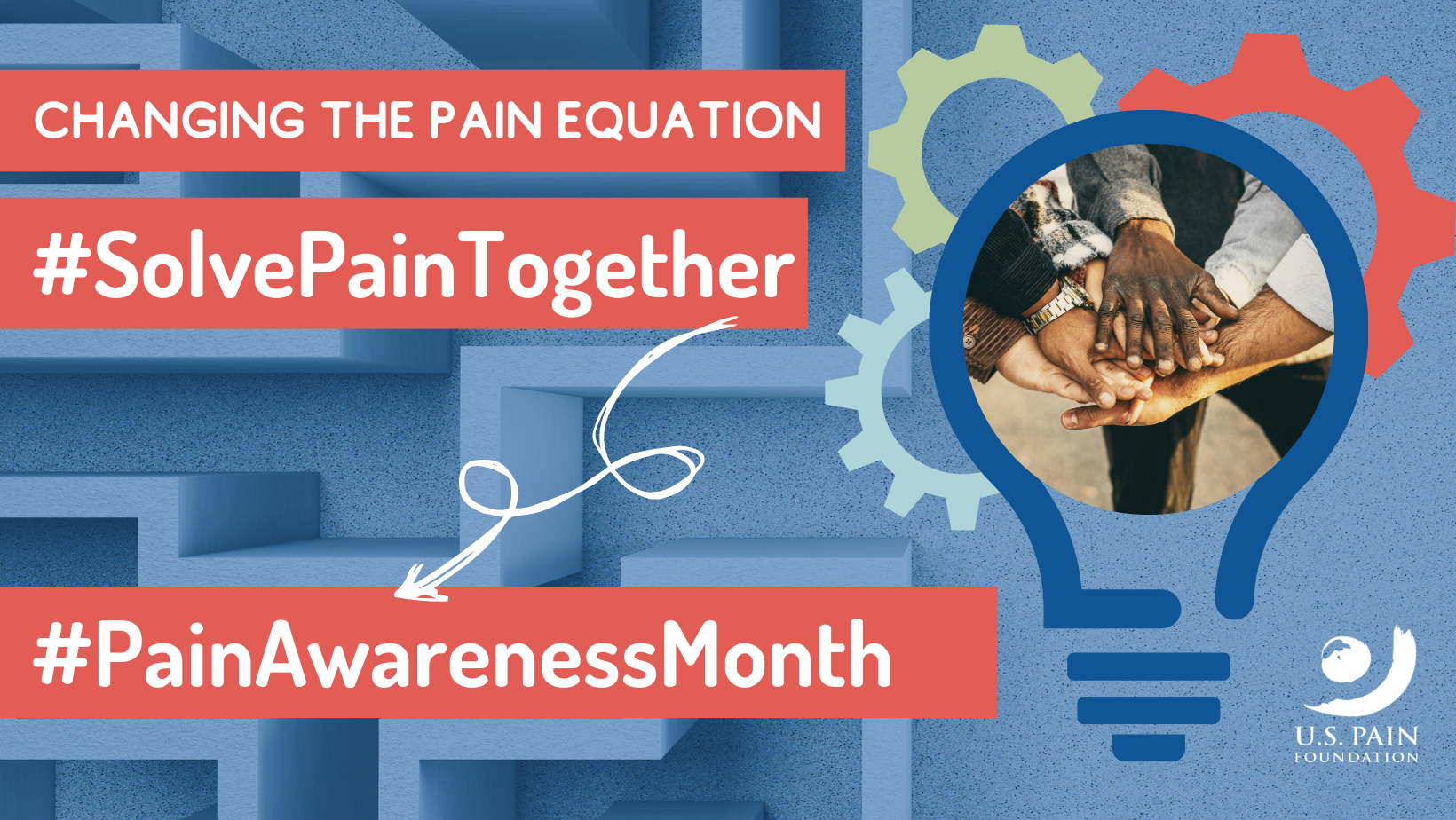
Chronic pain is complex. Solving it is equally so.
There are more than 51.6 million Americans living with chronic pain. Among them, more than 14 million are unable to work due to high-impact chronic pain. Addressing this epidemic requires a collaborative approach.
It will take better data. It will take expanded, targeted research. And it cannot exclude the patient voice.
September is Pain Awareness Month, and this year, the U.S. Pain Foundation initiative, #SolvePainTogether, will explore the theme of “Changing the pain equation.” This monthlong effort seeks to convey the many factors that must be considered to solve pain—the lived experience, the role of health care providers, the importance of updated, reliable data, and the need for more pain research to improve health outcomes.
We will explore the full experience of chronic pain—from diagnosis to building a treatment plan to discovering who you are as a person with pain and learning to advocate for yourself. We will share practical information and tips for patients and the individuals caring for or treating them. Then we’ll look at how to solve pain together, as individuals with pain, health care providers, researchers, and lawmakers. To change the pain equation, we need to start by analyzing the data and investing in more research to drive better outcomes.
“The chronic pain experience is extraordinarily complex, and solving pain requires wholesale effort and collaboration,” shares Nicole Hemmenway, CEO of the U.S. Pain Foundation. “Medical professionals, researchers, lawmakers, everyday individuals living with pain—we all have a role to play in the fight against this epidemic that affects millions of Americans.”
Looking ahead this September
Our Pain Awareness Month efforts will highlight the importance of collaborating to change the pain equation by sharing:
- A daily fact, statistic, or insight shared on social media (Facebook, Instagram, and Twitter) about various aspects of the chronic pain experience, data, and research.
- Weekly articles to be published on uspainfoundation.org focusing on the importance of data about chronic pain, strategies for activity management and pacing, the importance of developing an individualized pain management plan, and how to effectively communicate with a team of medical providers.
- An infographic highlighting updated chronic pain facts.
- Webinars offered in collaboration with Migraine at School and the National Institutes of Health, with presenters including NIH HEAL researcher Laura Simons, PhD, of Stanford School of Medicine.
- Five virtual Health Hack events and videos, created for Humana Neighborhood Centers.
- A monthlong virtual Pain Series, offered in collaboration with Humana Neighborhood Centers.
- Opportunities for individuals living with pain to share their experiences on social media.
Each week, the content shared will revolve around a different theme or topic, covering a different aspect of how to change the pain equation:
- Week 1: The impact of chronic pain and the importance of pain data.
- Week 2: The importance of creating a multidisciplinary pain plan.
- Week 3: The role mental health plays in chronic pain.
- Week 4: The value of building effective communication with medical providers.
- Week 5: The effects of caregiver burnout.
It’s time to #SolvePainTogether.
To learn more about the U.S. Pain Foundation’s Pain Awareness Month initiative, click here.
Subscribe to our newsletter
U.S. Pain Foundation is a 501 (c)(3) nonprofit organization dedicated to serving those who live with conditions that cause chronic pain, as well as their caregivers and care providers. Learn more.
Our Sponsors
U.S. Pain Foundation relies on the generosity of donations and grants. We are especially thankful to our Corporate Council for sustaining our programs and services year-round. Learn more.
Contact Us
U.S. Pain Foundation, Inc.
15 North Main Street, Unit 100
West Hartford, CT 06107
Telephone: 800.910.2462
Email:
contact@uspainfoundation.org
Tax ID number: 26-2703521
All Content Copyright 2021 | All rights reserved. U.S. Pain Foundation is a qualified 501(c)(3) tax-exempt organization. Disclaimer
